This timeline charts Gerald Ford's path in the 1976 election, from competing for the Republican nomination in the primaries to his fight against Jimmy Carter in the general election. Follow along to learn more about the key moments in his campaign.
Primary: Massachusetts, Vermont
Ford Wins
Illinois
Campaign Stops: Springfield, Peoria
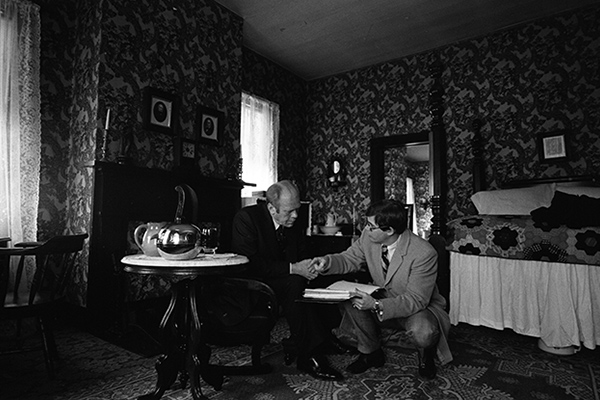
President Ford and Terry O’Donell in the Lincoln bedroom, Abraham Lincoln Home National Historical Site, Springfield, IL.
Illinois
Campaign Stop: Thomasboro
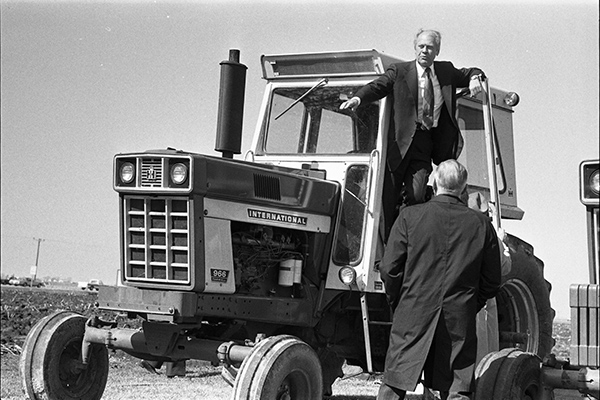
President Ford visits the Lyle Grace Farm in Thomasboro, IL.
Florida Primary
Ford Wins
California
Campaign Stop: San Diego

First Lady Betty Ford at the opening of the PFC Headquarters in San Diego, CA.
Illinois
Campaign Stops: Libertyville, Rockford
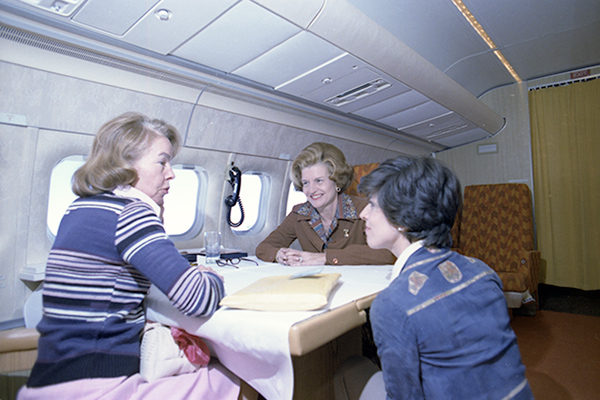
First Lady Betty Ford meets with her staff enroute to Libertyville, IL.
Illinois
Campaign Stops: Libertyville, Rockford, Chicago, Wheaton, Buffalo Grove
Illinois to North Carolina
Campaign Stops: Greensboro, Winston Salem, Millers Creek
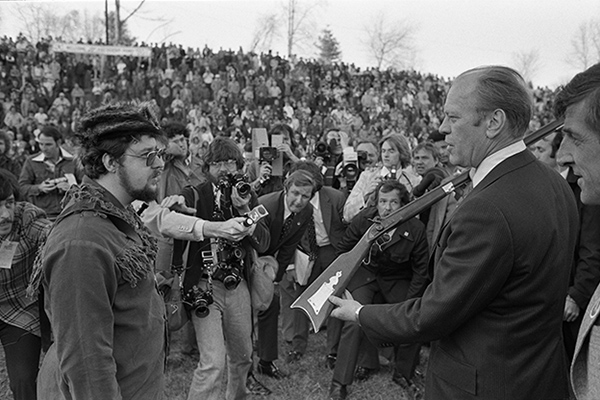
President Ford is presented with a Bicentennial Rifle by a descendant of Daniel Boone in Miller's Creek, NC.
Illinois Primary
Ford Wins
North Carolina
Campaign Stops: Charlotte, Ashville, Morrison Field, Hickory
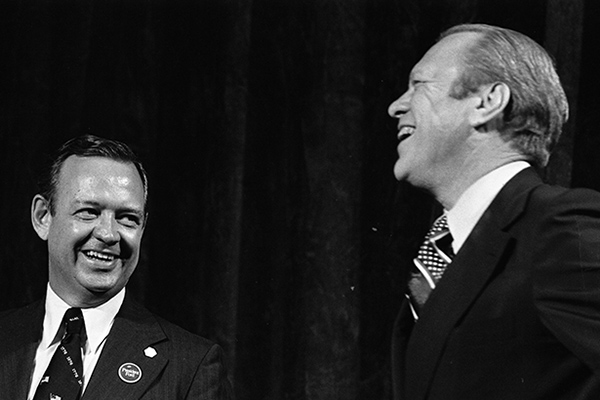
President Ford and Rep. James Broyhill onstage at a Citizens Forum in Hickory, NC.
North Carolina Primary
Reagan Wins
California
Campaign Stops: San Francisco, Los Angeles
California to Wisconsin
Campaign Stops: Los Angeles, Fresno, LaCrosse, WI
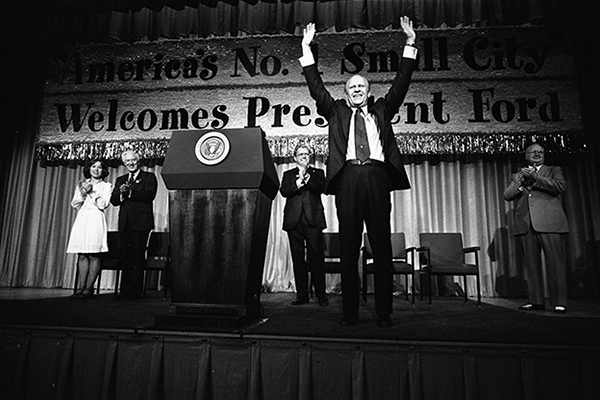
President Ford’s campaign trip to LaCrosse, WI.




